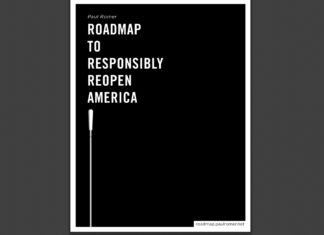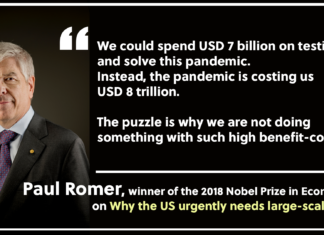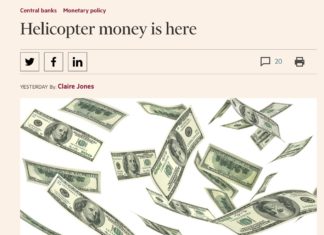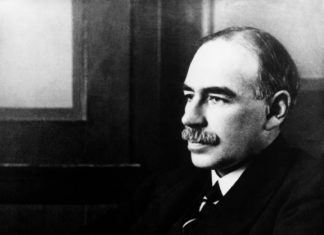Fed’s swap lines help easing Covid-era global dollar shortage
Countries with swap line arrangement with Federal Reserve, be it the standing ones or temporary, saw smaller increases in spread during the initial pandemic stress period.
Interview with Paul Romer on large scale Covid testing – Transcript
Edited transcript of our interview with Paul Romer, on why the US urgently to scale up testing for Covid-19 and why he thinks the covid-crisis amounts an intellectual failure
US needs large-scale Covid testing urgently: Nobel winning economist Paul Romer
In an exclusive interview with EconReporter on Tuesday, Romer, co-recipient of the 2018 Nobel Prize in Economics Science, urged the US to adopt large-scale testing immediately to halt this most detrimental economic slump ever since the Great Depression in the 1930s.
How to benefit from others’ QE — Hong Kong Linked Exchange Rate’s lesson
What if I tell you, behind the boring news headline, there is actually a wonkish story about how the Hong Kong central bank took advantage of the monetary easing by the Fed in the last 12 year and created a new set of policy options that it can now use to actively mange the inflows created by the new round Fed easing under the Great Lockdown.
How to use the Fed’s FIMA Repo — the case of Hong Kong
Hong Kong Monetary Authority, the de facto central bank of Hong Kong, announced on April 22 that it will utilize the Fed's FIMA Repo facility to borrow USD 10 billion of cash.
Helicopter Money is here in Hong Kong? Well…
“The money helicopter has arrived,” Claire Jones writes in her FT Alphaville post, citing Hong Kong Finance Secretary’s announcement of a handout of HKD...
Macroprudential Policy – how does it differ from rate hikes?
Macroprudential policies, it is argued, are more targeted and can complement central bank’s use of interest rate policy.
How often companies in Eurozone change their prices?
An ECB survey found that the retailers review and change their prices most often, while consumer and business service firms adjust their pricing the least often. Firms in the manufacturing sector, meanwhile, have a price adjustment frequency somewhere in between the above sectors
Akerlof on Keynesian-neoclassical synthesis’s departure from Keynes
George Akerlof explains how the Keynesian- neoclassical synthesis dominated the field, and what problems this dominance resulted.
A Pitfall of Global Economic Policy Uncertainty Index
In recent months, the Global Economic Policy Uncertainty index has risen to a level much higher than periods around the 911 Terrorist Attack or the 2008 Financial Crisis, hence the conclusion that the economic policy is unprecedently uncertain now.
But here is why you might not have to worry.

















